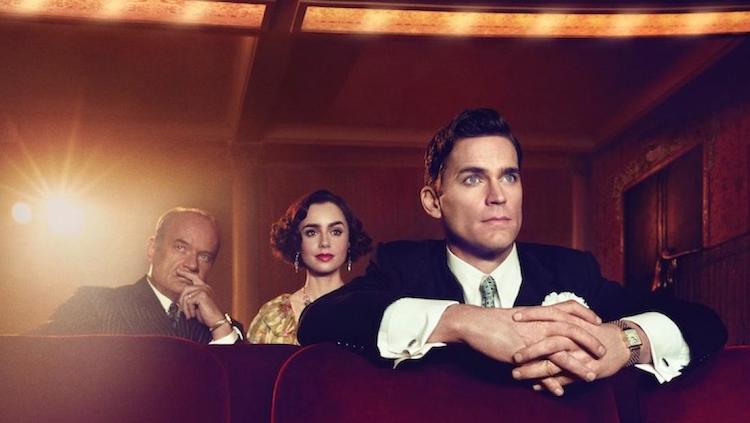‘The Last Tycoon’ Examines Hollywood Then, and Now

The smarter way to stay on top of broadcasting and cable industry. Sign up below
You are now subscribed
Your newsletter sign-up was successful
Adaptations of F. Scott Fitzgerald’s books to the TV and movie screen have not, for the most part, fared particularly well, but the folks behind The Last Tycoon, debuting July 28 on Amazon, are hoping they’re sitting on a winner. The Last Tycoon is a unique property in that Fitzgerald did not finish the novel—it was completed and published after his death. That’s seen as a big plus for the producers of the TV series.
“It was very much an opportunity,” said Billy Ray, executive producer. “Think about how hard it is to adapt something that people think of as a finished, perfect piece of art. We weren’t going to be faced with that.”
Ray likens The Last Tycoon to “an enormous launching pad” built by Fitzgerald but one that never did launch a rocket.
Fitzgerald’s classic The Great Gatsby spawned two movies, a 1974 film starring Robert Redford and a 2013 one made by Baz Luhrmann. The Last Tycoon, which Fitzgerald wrote based on his screenwriting experiences, was once brought to the big screen, by Elia Kazan in 1976. Robert De Niro played hot young studio executive Monroe Stahr, and Robert Mitchum played studio boss Pat Brady.
This time around, Matt Bomer plays Stahr, and Kelsey Grammer plays Brady. Grammer says he was intrigued by the character, who he describes as “a bit of a gangster in his own head.”
“There were some unanswered questions, some blanks to fill in,” he said. “Some stuff I hadn’t played before.”
Ray knows there’s pressure in bringing a Fitzgerald novel to the screen but says he’s not concerned with how other adaptations have fared. Neither he nor fellow executive producer Christopher Keyser saw the 1976 film. “We apply so much pressure to ourselves to succeed at every level,” Ray said. “It’s a pressure that motivates us every single day. None of it comes from someone else’s failure or success adapting Fitzgerald.”
The smarter way to stay on top of broadcasting and cable industry. Sign up below
Ray has had a long and storied career in film (Captain Phillips, The Hunger Games) and is fairly new to television. He says the Last Tycoon story is too “inexhaustible” for film. “There’s something about the forced economy of 110 pages,” he said, “versus, we have five years with these characters. It’s just irresistible.”
Keyser has more TV experience, with Tyrant and Party of Five on his resume. He says producing a show for Amazon isn’t all that different from working with a more traditional network. The one difference with Amazon is, the viewer can binge the whole season at once. “It changes the way you tell the story,” he said.
Grammer too says working with Amazon is similar to working with other networks, but mentions that he’s not a producer on The Last Tycoon. “I’m innocent of any ill things going on,” he quipped.
Theories abound as to why Fitzgerald’s books have not done better on the screen. Ray says they’re largely “internal,” and therefore difficult to showcase in a visual medium. “Unless you narrate the entire movie,” he said, “it’s impossible to capture the thing that makes people sit up and read a paragraph twice.”
Grammer says it’s exceedingly difficult for a filmmaker to equal the notion of a great book that a reader brings to the theater. “It’s such a personal relationship,” he said. “It’s always hard to top if you’re a filmmaker.”
The producers say they’ll use Fitzgerald’s characters and setting—and the “beginnings of a story,” said Keyser. They’ll take creative license with the rest.
The Last Tycoon dives deep into the issues facing Hollywood in the 1930s. German luminaries sound off on scripts they feel show Germans in an unflattering manner, and studio bosses have to listen to fully capitalize on the overseas market. Grammer shares a story about a scene of his in a Transformers film that was cut to appease the Chinese market.
The Hollywood issues—then and now—are something Ray and Keyser are keen to explore. “You can have a conversation about the Hollywood of today by telling the story of Hollywood in the ‘30s and ‘40s,” Ray said. “That was a conversation I very much wanted to have.”
Michael Malone is content director at B+C and Multichannel News. He joined B+C in 2005 and has covered network programming, including entertainment, news and sports on broadcast, cable and streaming; and local broadcast television, including writing the "Local News Close-Up" market profiles. He also hosted the podcasts "Busted Pilot" and "Series Business." His journalism has also appeared in The New York Times, The L.A. Times, The Boston Globe and New York magazine.

